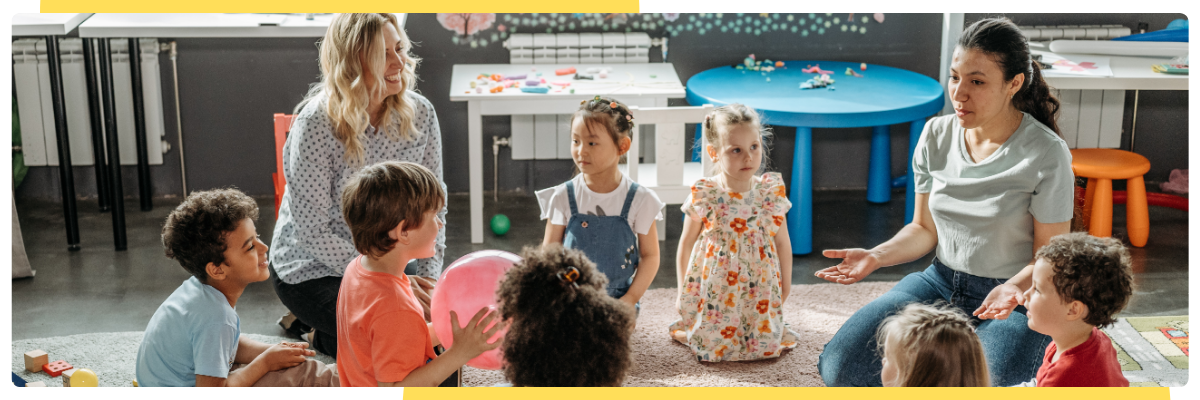The Importance of Consistent Routines in Early Childhood Education

Establishing consistent routines is pivotal in the vibrant world of early childhood education. Young children thrive on predictability, and having a structured routine not only fosters a sense of security but also supports cognitive, social, and emotional development. Let's delve into why consistent routines matter and explore some practical examples and ideas for implementing them in your early childhood education program.
Why Consistent Routines Matter
1. Security and Predictability: Children feel more secure and confident knowing what to expect. A predictable routine helps them understand their environment and reduces anxiety, creating a stable foundation for learning.
2. Behavior Management: Routines help in managing behavior by setting clear expectations. When children know what comes next, transitions become smoother, making them more likely to follow instructions.
3. Independence and Responsibility: With consistent routines, children learn to anticipate what is expected of them and gradually take on responsibilities. This fosters independence as they learn to manage their time and activities.
4. Cognitive Development: Routines support cognitive skills by providing opportunities for repetition and practice. Storytime, playtime, and snack time help children develop memory, attention, and sequencing skills.
Examples and Ideas for Establishing Routines

Morning Routine
Start the day with a consistent morning routine. Greet each child warmly and encourage them to hang up their coats and bags. Follow this with a group activity like a morning circle. During circle time, you can discuss the day's schedule, sing songs, and allow children to share their thoughts.
Learning Centers
Divide the day into blocks of time dedicated to different learning centers. For example, have a block for literacy activities, another for art and creativity, and a third for science and exploration. Ensure these blocks are consistent daily so children know what to expect and can look forward to their favorite activities.
Snack and Lunch Times
Designate specific times for snacks and lunch. Use these times to teach children about healthy eating habits and manners. Encourage them to wash their hands before meals and clean up after themselves. Consistent meal times also help children recognize their body's hunger cues.
Nap and Rest Times
For younger children, a consistent nap time is crucial. Create a calm and soothing environment with dimmed lights and soft music. This helps children recharge and teaches them the importance of rest and self-care.
Outdoor Play
Incorporate outdoor play into the daily routine. Fresh air and physical activity are vital for young children. Use this time for structured games or free play, allowing children to explore and burn off energy.
Enhancing Parent Communication
Parent communication tools play a significant role in maintaining and reinforcing these routines at home. When parents are kept in the loop, they can more effectively support their child's learning and development.
1. Daily Updates: Use parent communication apps to send daily updates about the child's activities, meals, and nap times. This helps parents understand the routine and discuss their child's day at home.
2. Weekly Newsletters: Share newsletters highlighting upcoming themes, activities, and special events. This keeps parents informed and engaged, allowing them to prepare and participate in their child's learning journey.
3. Parent-Teacher Conferences: Schedule regular parent-teacher conferences to discuss the child's progress and address concerns. This personalized communication fosters a strengthened partnership between parents and educators.
4. Sharing Resources: Use communication tools to share resources such as articles, videos, and tips on establishing routines at home. This consistency between home and school reinforces the child's learning and development.

Consistent routines are the backbone of a successful early childhood education program. They give children a sense of security, help manage behavior, and promote independence and cognitive development. By integrating parent communication tools, educators can ensure that routines are reinforced at home, creating a cohesive and supportive environment for every child. Embrace the power of routines and watch your little learners thrive!
ChildPilot provides a comprehensive childcare management software solution for childcare providers, simplifying center operations and enhancing parent engagement. It combines essential functions such as check-in/out, parent communication, billing, and compliance into a user-friendly platform supported by exceptional customer service. Request a demo today to discover more!
1255